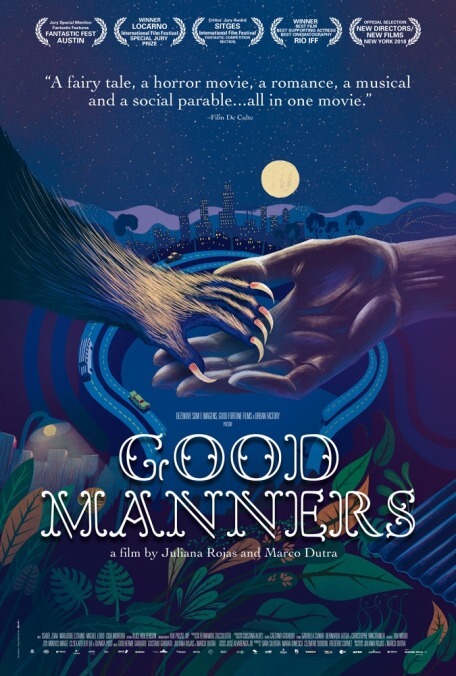Good Manners is the rare monster movie that might be better before the monster shows up

Movies about the fantastic often begin by establishing a patina of normalcy, the better to rupture it later. Like anything else, these initial, comparatively ordinary scenes can be executed skillfully or poorly; some feel like a waste of time (“Get to the good stuff!”), whereas others whet the appetite for what’s to come. The Brazilian creature feature Good Manners, written and directed by Juliana Rojas and Marco Dutra, achieves something unique: Its low-key place-setter of a first act is so damn good that the subsequent shift from precisely observed naturalism to psychotronic mayhem proves slightly disappointing. There’s nothing especially wrong with the arty horror movie that Good Manners becomes, mind you, and the metamorphosis (unexpected, for those who haven’t read a review or seen the poster image, anyway) offers pleasures of its own. All the same, one can’t help but mourn the loss of what had appeared to be a superlative drama, featuring subtly incisive commentary on race and class that gets replaced by a blunt metaphor.
For a while, the film concerns the complex relationship between two very different women. Ana (Marjorie Estiano), who comes from money and demonstrates a corresponding sense of entitlement, is several months pregnant and conducting interviews for a live-in nanny. She hires Clara (Isabél Zuaa), even though there were many more qualified applicants; Clara may have no experience and no references, but she instinctively responds when Ana experiences sudden pain during the interview, putting her employer at ease. It also soon becomes clear that Ana perceives the desperately poor Clara as someone who’d be willing to perform menial chores, serving as more of a combination maid/nanny. Ana’s assumption about their respective roles doesn’t take into account Clara’s ironclad sense of dignity and self-worth, however, and the two gradually develop an unusual friendship that largely—but not entirely—disregards the chasm separating their circumstances.
So far, so terrific, with Estiano and Zuaa performing a beautifully calibrated emotional duet. The film could easily have continued in this vein. There are hints, though, of something unusual lurking in the background. For one thing, Rojas and Dutra repeatedly employ gorgeously forbidding matte paintings in exterior shots, for no apparent reason. There’s also a certain mystery involving the father of Ana’s unborn child, which may be related to her penchant for eating raw meat—and, eventually, live animals—in the middle of the night. Oddities escalate, building to an abrupt leap forward in time that sees Good Manners become a very different two-hander. This recalibrated narrative hits a lot of familiar genre beats, flattening the film’s thematic inquiry; monster-as-outsider is inherently potent, but here the trope feels less vital and inspired than does the small-scale intricacy that precedes it. Still, there are moments to treasure throughout, from lovely out-of-nowhere musical numbers to the beautiful hand-drawn stills that depict a key flashback. Think of it as getting two good movies for the price of one.